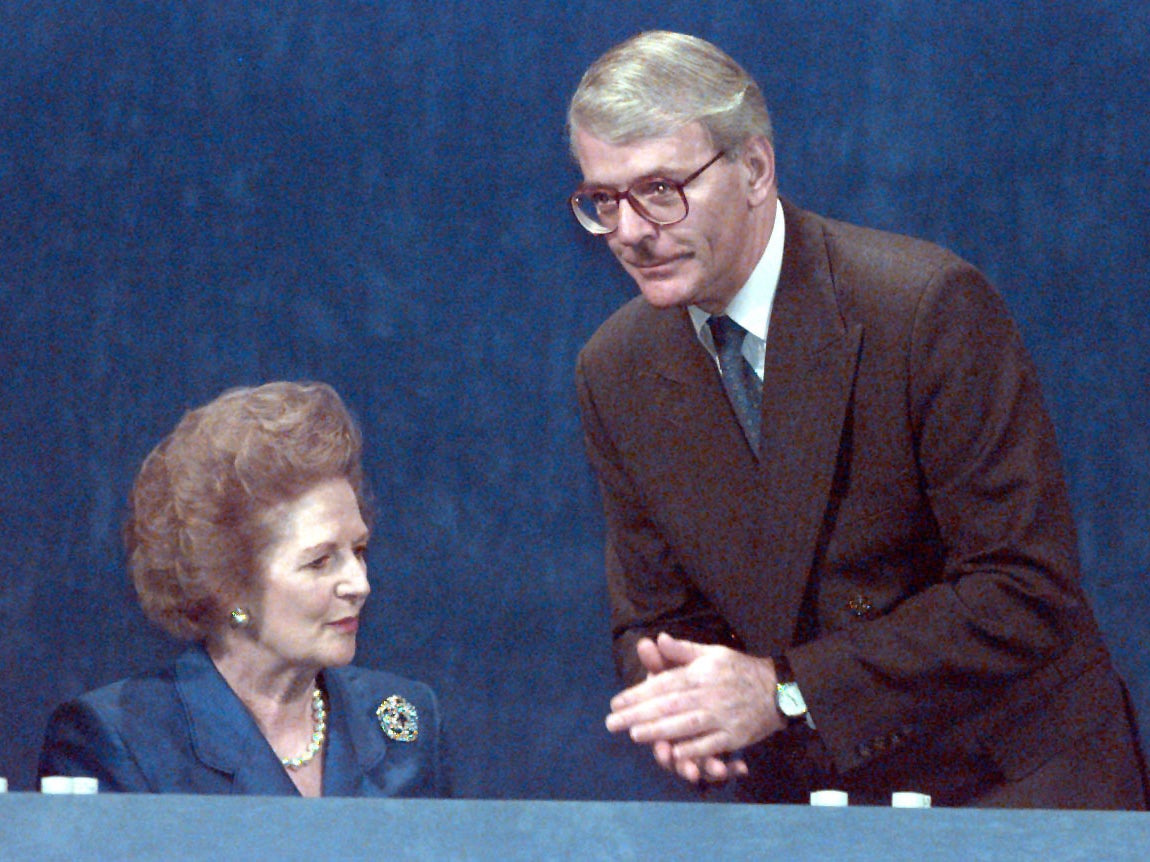Margaret Thatcher was furious at John Major's decision to scrap the poll tax, official documents reveal
Newly published papers reveal details of a tense private meeting between the two in January 1991

Margaret Thatcher was incensed by John Major’s decision to drop the poll tax, and told him so in an explosive private meeting in the House of Commons in January 1991, according to documents newly released in the National Archives at Kew.
Lady Thatcher was also merciless in her appraisal of Mr Major’s handling of the economy in the private meeting, which had been held at his request.
Lady Thatcher told him he risked making a “historic error” which could plunge the country into recession if he didn’t lower interest rates, likening the situation to Winston Churchill’s disastrous move to return the country from the gold standard in 1925 – a decision that led to the mass unemployment and the general strike of 1926.
The meeting sheds light on how the relationship between the two soured very quickly after Mr Thatcher left Downing Street, becoming one of many shadows over Mr Major’s difficult years in No 10.
Lady Thatcher believed her chosen successor wished to abandon many key aspects of her legacy in favour of more “compassionate” Conservatism, notably the loathed poll tax that brought about her downfall but remained her favourite policy.
On Boxing Day 1990, Mr Major wrote to her inviting her to a face-to-face meeting in the new year, telling the then-Prime Minister: “I am a little concerned at some of the press comment on a ‘new style’ as this suggests new policies, and I don’t wish to change the drift of policy.”
At the meeting on 3 January 1991, Lady Thatcher told him pledging to scrap the unpopular poll tax would cause more probleLady than it would solve.
“Local authorities would draw the conclusion that it was such a bad tax they could put it up as much as they liked and blame the government,” she said.
The meeting took place in Mr Major’s room in the House of Commons, and Lady Thatcher wasted no time in making her concerns known, warning that “excessively high” interest rates risked pushing the economy into recession.
“Thatcher said conditions on the economy were very tough indeed,” the official minutes of the meeting noted. “She believed that there was a danger of repeating Winston Churchill’s historic error.”
Mr Major told her the current situation “was not remotely comparable”, adding that “snatching at an interest rate reduction at the first opportunity” would be counter-productive.
MemoranduLady from later in the year make clear that relations between the two never fully recovered.
In discussions for plans for the 1992 general election, Conservative Party chairman Chris Patten wrote: “I understand Margaret’s entourage are letting it be known that if she were not invited to the final rally she would be ‘hurt’.
“It may be that inviting her to a rally at the beginning of the campaign, as we are proposing, will get around this difficulty.”
Join our commenting forum
Join thought-provoking conversations, follow other Independent readers and see their replies
Comments
Bookmark popover
Removed from bookmarks